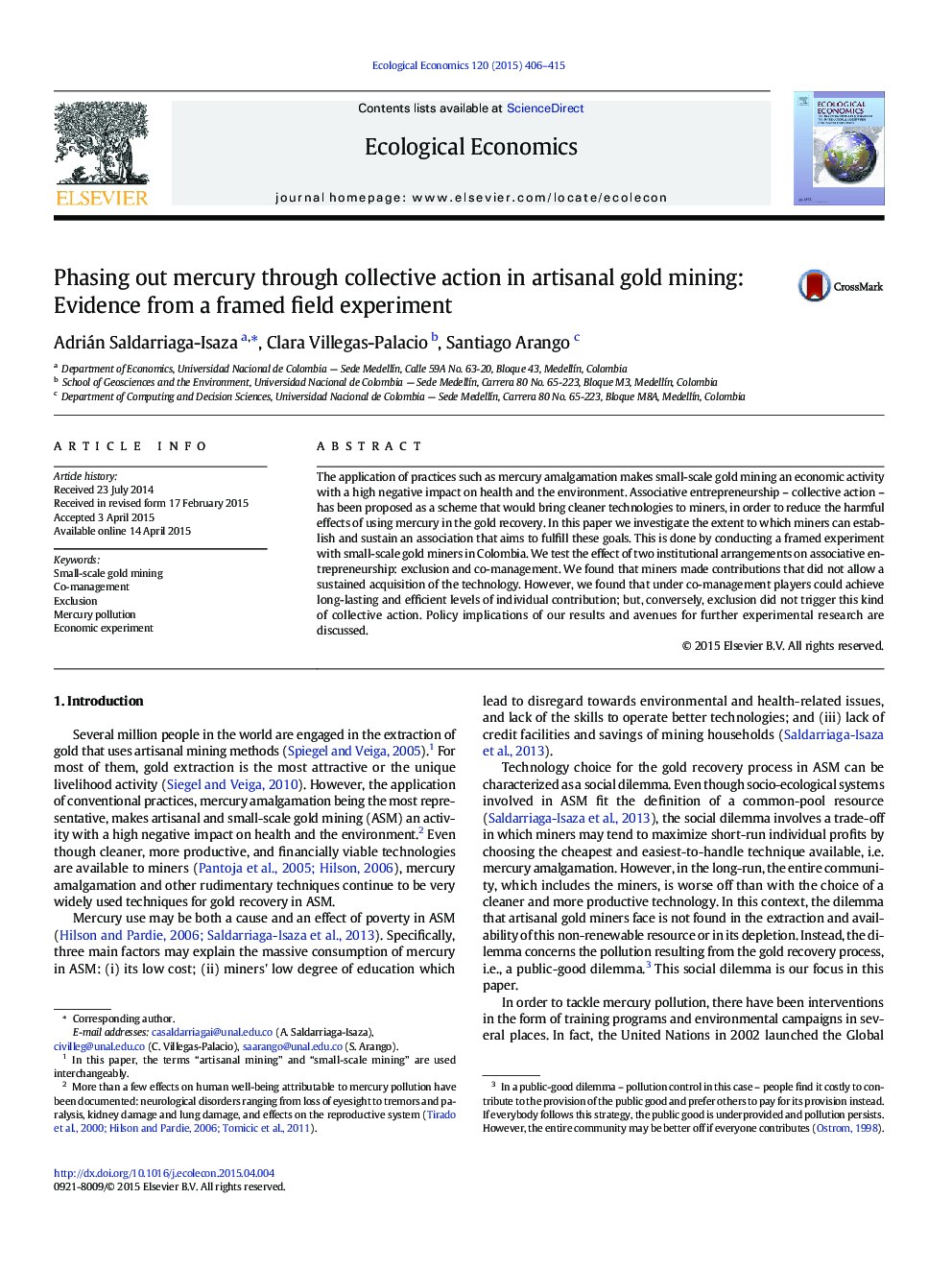| Article ID | Journal | Published Year | Pages | File Type |
|---|---|---|---|---|
| 5049218 | Ecological Economics | 2015 | 10 Pages |
â¢Field experiments to test collective action in artisanal gold mining.â¢Individuals did not succeed in sustaining an effective self-organization.â¢Co-management effected collective action in the experiment.â¢Both exclusion and its mix with co-management did not foster collective action.
The application of practices such as mercury amalgamation makes small-scale gold mining an economic activity with a high negative impact on health and the environment. Associative entrepreneurship - collective action - has been proposed as a scheme that would bring cleaner technologies to miners, in order to reduce the harmful effects of using mercury in the gold recovery. In this paper we investigate the extent to which miners can establish and sustain an association that aims to fulfill these goals. This is done by conducting a framed experiment with small-scale gold miners in Colombia. We test the effect of two institutional arrangements on associative entrepreneurship: exclusion and co-management. We found that miners made contributions that did not allow a sustained acquisition of the technology. However, we found that under co-management players could achieve long-lasting and efficient levels of individual contribution; but, conversely, exclusion did not trigger this kind of collective action. Policy implications of our results and avenues for further experimental research are discussed.
